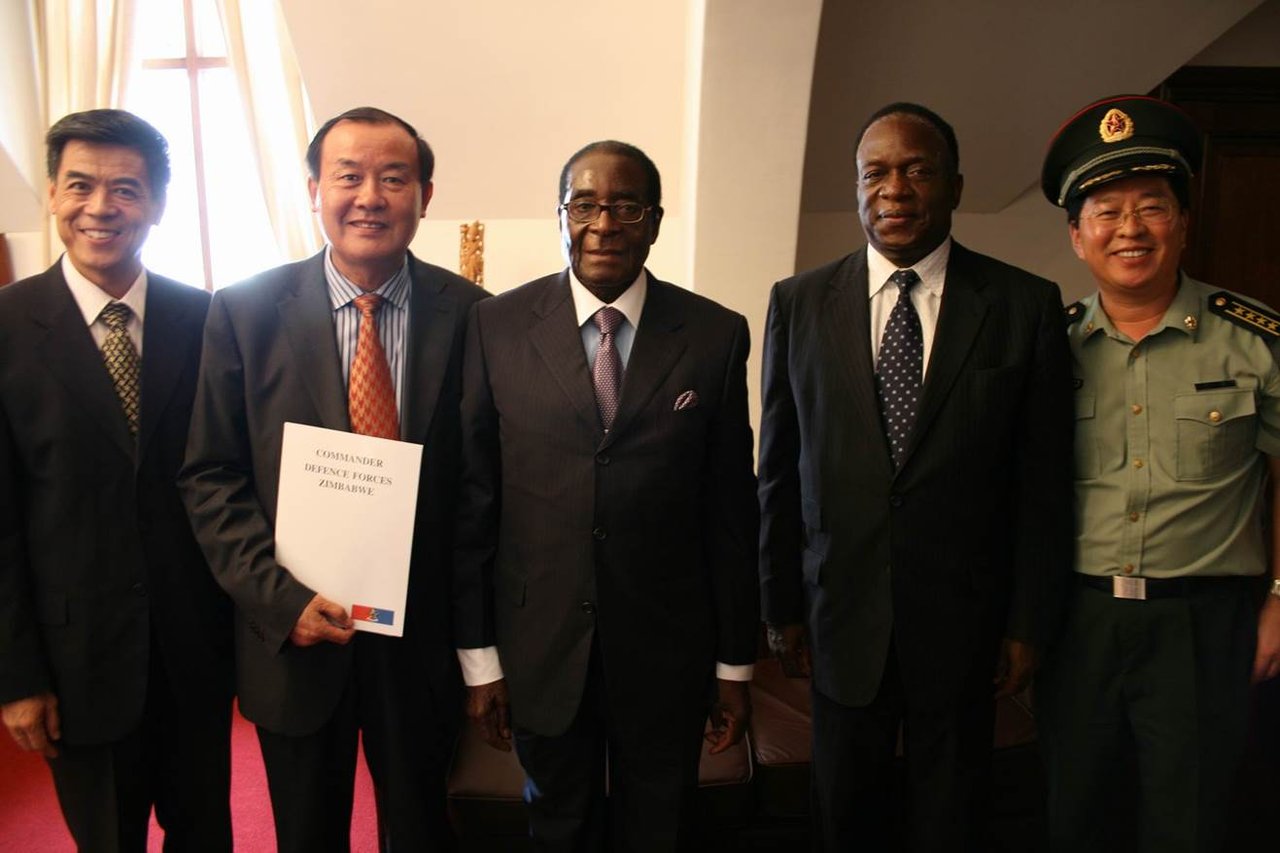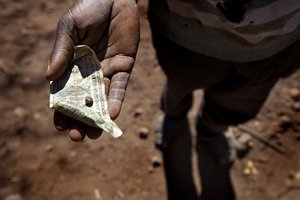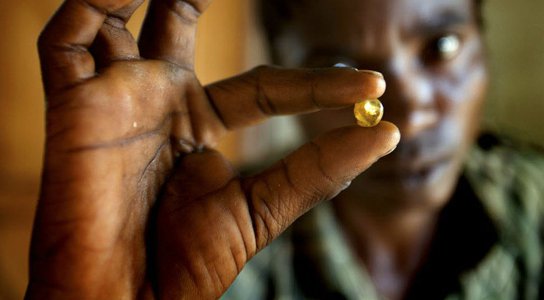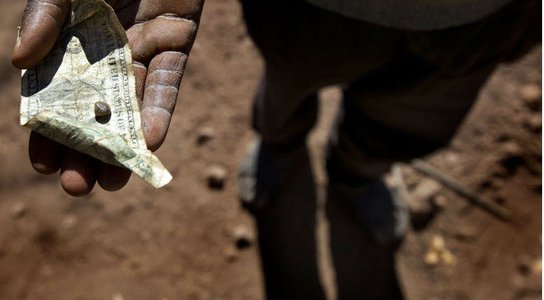For many years Global Witness has investigated a swirl of allegations around Zimbabwe’s Marange diamond fields. We uncovered the allocation of one diamond mining concession to the military, another to the Central Intelligence Organisation (CIO), and a third linked to a man with widely reported connections to the President. Our work is based on the belief that the Zimbabwean public deserve a fair share of their country’s natural resource wealth, but we have found little evidence that diamonds have benefitted ordinary people.
Perhaps this is naïve - perhaps diamonds were never meant to benefit the people of Zimbabwe? Perhaps the Zimbabwean people don’t even own their natural resource wealth?
Well, it turns out that it is not clear that they do.
Many countries that have thrown off exploitative colonialism went on to place ownership of minerals in the ‘people’, the nation or the state. By contrast, Zimbabwe’s Mines and Minerals Act is clear that rights to minerals are vested in the President.
“The dominium in and the right of searching and mining for and disposing of all minerals, mineral oils and natural gases, notwithstanding the dominium or right which any person may possess in and to the soil on or under which such minerals, mineral oils and natural gases are found or situated, is vested in the President, subject to this Act.” - Zimbabwe’s Mines and Minerals Act

Zimbabwe's President Robert Mugabe and the then Minister of Defence Hon. Emmerson Mnangagwa at the granting of a diamond mining licence.
This law is a colonial relic. In a privatised form of colonialism, Cecil Rhodes – the founder of De Beers diamond firm – mixed his own personal mining interests with violent imperialism in the creation of the British South Africa Company. Under a Royal Charter from Queen Victoria this company came to administer the territory and peoples of what became known as Southern Rhodesia. Eventually, his company claimed all mineral rights. After the 1965 Unilateral Declaration of Independence from the UK the white minority government introduced a new constitution in 1969. This established that all mineral rights were vested in the President on behalf of the Republic of Rhodesia. Today’s law was written at a time when a racist regime was riding roughshod over the rights of the black majority.
Zimbabwe was liberated in 1980, but almost four decades later the country’s mineral rights remain vested in the President. The government has recognised that the law needs to be updated in other respects, but the recent draft Mines and Minerals Amendment Bill retains custody of mineral rights with the Presidency.
Of course, if you read the Mines and Minerals laws together with Zimbabwe’s 2013 constitution – which sets out the respective roles of the President and other elements of the state – then you can make a case that mineral rights are vested in a President who must “promote unity and peace in the nation for the benefit and well-being of all the people of Zimbabwe.”
But there are two reasons why this may not be sufficient.
The first is that occasionally Presidents conflate personal benefit with the wider public interest. “L’État. C’est moi. (I am the State),” said King Louis XIV, who established a highly centralised, absolutist monarchy in seventeenth century France. In a particularly shocking modern example President Ferdinand Marcos of the Philippines gradually took over the country’s economy, granting himself government contracts, tax exemptions and monopolies.
Without legal clarity there is a danger that this President, or a future one, may confuse his or her private interests with those of the Zimbabwean people. The law should not encourage that confusion.
The second reason is that the sheer scale of mismanagement of Marange diamonds – claims that billions of dollars of revenue have been lost are not uncommon – requires a wholesale revision of how natural resources in Zimbabwe are managed. In a country where one quarter of the population needed food aid in 2016, it is an outrage that billions have gone missing. The secrecy, cronyism and involvement of the military and the CIO in the natural resource sector needs to end. It should be replaced by a policy framework which maximises benefit for ordinary Zimbabweans.
The early legal texts of the colonial era both reflected and influenced how mineral s were looted from the country. A new first clause of the Zimbabwean mining law could set the tone for more positive reforms.

A diamond panner attempts to sell a diamond. Robin Hammond/Panos
There are a range of options for rewriting the law:
1. Zambia’s 2015 Mines and Minerals Act makes clear that the President holds custody of mineral rights on behalf of the state: “All rights of ownership in, searching for, mining and disposing of, minerals wheresoever located in the Republic vest in the President on behalf of the Republic.”
2. Botswana’s 1999 Mines and Minerals Act vests rights in the state and makes reference to the public interest: “Subject to the provision of the Mineral Rights in Tribal Territories Act, all rights of ownership in minerals are vested in the Republic and the Minister shall ensure, in the public interest, that the mineral resources of the Republic are investigated and exploited in the most efficient, beneficial and timely manner.
3. Ghana’s 2006 Minerals and Mining Act vests rights in the President but makes clear that they are held in trust for the Ghanaian people: “Every mineral in its natural state in, under or upon land in Ghana, rivers, streams, water-courses throughout the country, the exclusive economic zone and an area covered by the territorial sea or continental shelf is the property of the Republic and is vested in the President in trust for the people of Ghana.”
4. South Africa’s 2002 Mineral and Petroleum Resources Development Act states: “Mineral and petroleum resources are the common heritage of all the people of South Africa and the State is the custodian thereof for the benefit of all South Africans.”
Whatever model is chosen is a matter for the Zimbabwean people but when the needs of ordinary Zimbabweans are so great, it would seem appropriate to reform the Mines and Minerals Act so that it is clear that they – not the President – should enjoy the natural riches of their own country.

